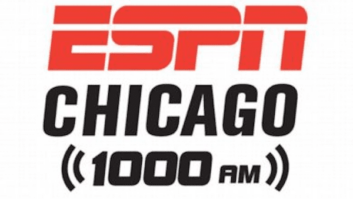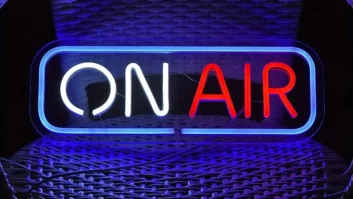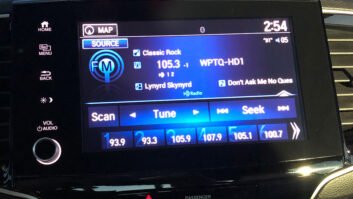Imagine you’re the chief of a station in Madison, Wis. It’s summertime, peak tornado season, and a vicious twister has just torn through part of your community, taking lives, damaging buildings and knocking you off the air. Another nasty cloud form reportedly is brewing.
You jump into your vehicle and rush toward the transmitter site to assess the damage and to get your station back up so it can report on the next threat and pass along instructions of emergency responders to the public.
But a mile from the site, you are stopped at a roadblock by a state police officer who tells you that the area hit by the twister is now closed to everyone until all storms have past. You protest that you are a radio engineer rushing to get your station back on the air.
“Everyone means everyone,” the trooper replies, resting his hand on his holster as he leans into your car window. The look on his face suggests he’d be happy to see you test his statement.
You’re stuck. You can do nothing to reach the tower site and get your station back on the air to do its job serving the local interest, convenience and necessity.
Or can you?
Aid to judgment
If you work in Wisconsin and your station takes part in its new Broadcaster Emergency Personnel ID Card Program, you can show the officer a laminated card that identifies you as essential broadcast personnel who may be allowed to proceed to your facility.
The card bears the endorsement of the state’s Department of Justice Division of Criminal Investigation and a toll-free number the officer can call to verify.
The program is a byproduct of lessons learned after Hurricane Katrina and a model for cooperation among broadcasters, engineers and law enforcement.
It was conceived when Michelle Vetterkind, president of the Wisconsin Broadcasters Association, and Gary Timm, a broadcast engineer for Journal Broadcast Group and the state’s EAS chair, attended an “EAS summit” meeting held by the National Alliance of State Broadcasters Associations.
Vetterkind and Timm heard colleagues from Mississippi and Louisiana talk about how difficult it had been for engineers to get to transmitter sites after Katrina. Vetterkind, Timm and WBA Vice President Linda Baun decided to act to avoid a similar problem in Wisconsin by proposing the ID program.
The cards do not guarantee passage; if an officer deems the situation life-threatening or unsafe, passage may still be denied. But the card can help immensely in a situation where a well-intended officer must make a quick decision under stress about who is and isn’t qualified to pass. The IDs also ease access to Local Emergency Operation Centers should EOC officials ask for broadcast personnel help.
Trust but verify
Launched in February, the program has attracted the participation of 41 broadcast organizations, some with multiple stations. Approximately 112 engineers in Wisconsin now carry the card, with more pending.
“We’re very fortunate in that we have a fantastic relationship with our Department of Justice,” Vetterkind told me. “This has been a roadblock in many other states, but for us it wasn’t. We went to them and they asked, ‘How can we help?’ Not only did we get their approval, but they’re laminating the cards.”
A radio or TV station must apply for a card and the general manager must sign the request, which is sent to the WBA and Justice officials for approval. The wallet card arrives in four to six weeks and bears the engineer’s photo, station name and title; on the back it carries a Justice Department explanation and the toll-free verification number.
Justice educates law enforcement agencies about the card, prints them and maintains the phone line. The broadcast association maintains the database of IDs and shares it with DOJ for its reference in answering the line.
Baun said the approval process is stringent, not at all a rubber stamp.
The card is not intended for journalists trying to work around authorities; nor is it issued to station general managers. (A few have tried. GMs don’t generally like to be told that they are “nonessential personnel,” but we’re talking about emergencies here.)
Cards do not expire but must be renewed every two years, and when a person leaves a station’s employ, the GM must collect the card. Contract engineers must apply through each station and may have to carry multiple cards. “You need to be able to verify you’ve gone through the proper procedure,” Vetterkind said.
I asked Linda Baun if she has any advice to others who may wish to set up such a program.
“Communicate, communicate, communicate,” she replied.
“The message is we are all in this together. We want to have the ‘plan’ in place so chaos doesn’t ensue during an emergency situation. Open dialogue, a great attitude and turning the ‘what if’ into ‘this is the plan’ is not a simple task; but the plan itself must be simple, because in times of catastrophe, keeping it simple is crucial.”
Talk it up
As the spouse of a broadcast engineer, Baun knows that technical people may be intimidated by the idea of trying to launch such a program.
She advises that you gather interest from colleagues and identify a broadcast leader in your area who can carry the idea to law enforcement. “It’s not about who gets the credit or the politics, it’s for the good of your community,” she said.
“Develop that relationship with your Department of Justice,” Vetterkind added, or with the appropriate agency in your state, perhaps the state police or emergency planning department.
WBA also recommends that, once you have your card, you meet with local or county law enforcement to be sure those agencies are aware of the program. That’s particularly important if your transmitter is in a different county than the studio; in that case, you should meet with agencies from both counties.
Local SBE chapters and others should take note of this smart program. For information see www.wi-broadcasters.org, under Emergency Planning.
An FCC panel after Katrina supported the idea of a national standard for credentialing telecom repair workers; broadcast workers also could be included in such a standard. Until then, though, states are wise to act on their own.
A few other jurisdictions reportedly have adopted similar programs, including New Jersey, South Carolina and New York City. Wisconsin, meanwhile, may never suffer a hurricane such as Katrina; but it is squarely in tornado country, and we can easily imagine it being hit by a pandemic or hazmat train wreck.
Next time something unforeseen happens in these areas, radio engineers will be better prepared to respond where they are needed most.












